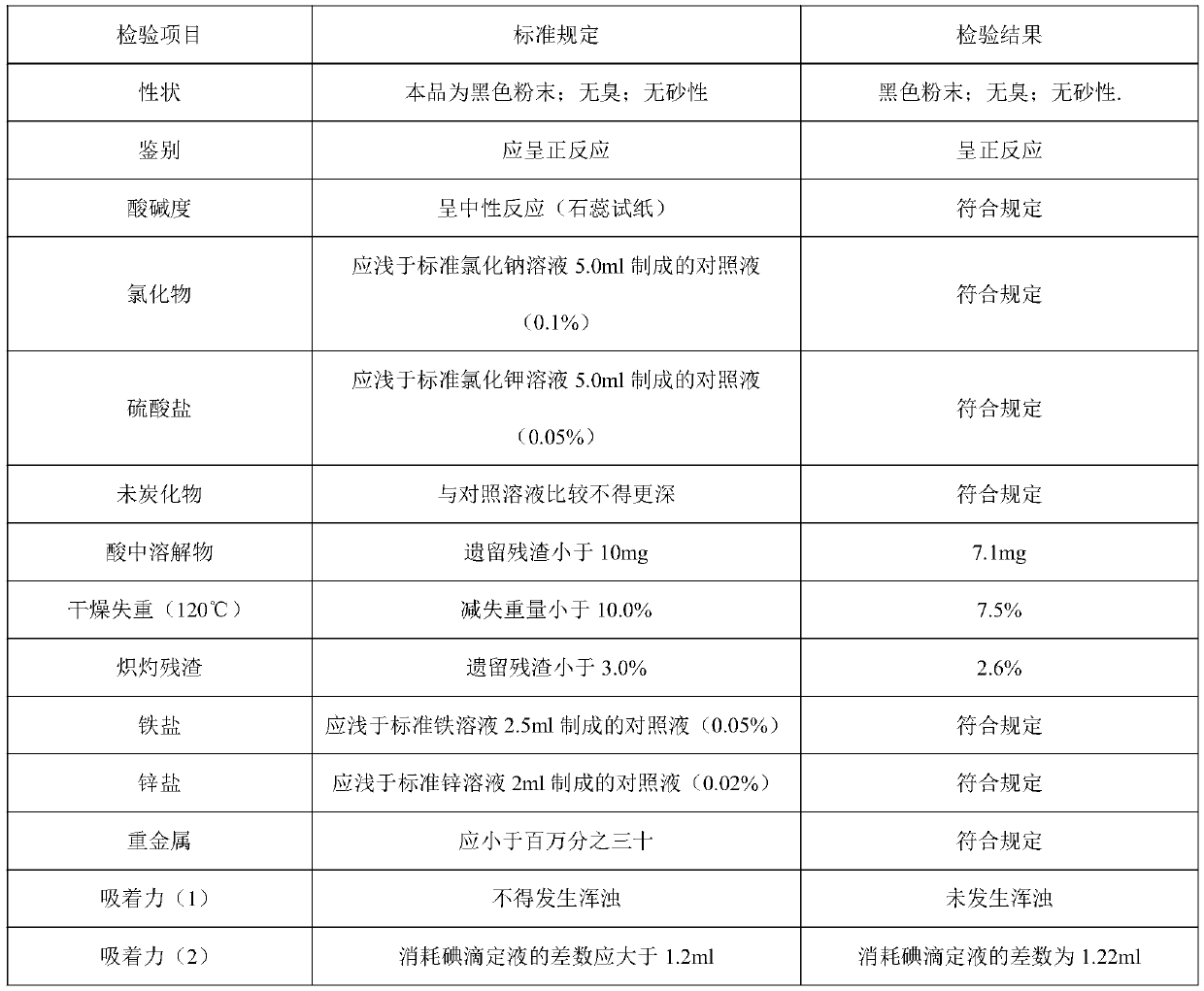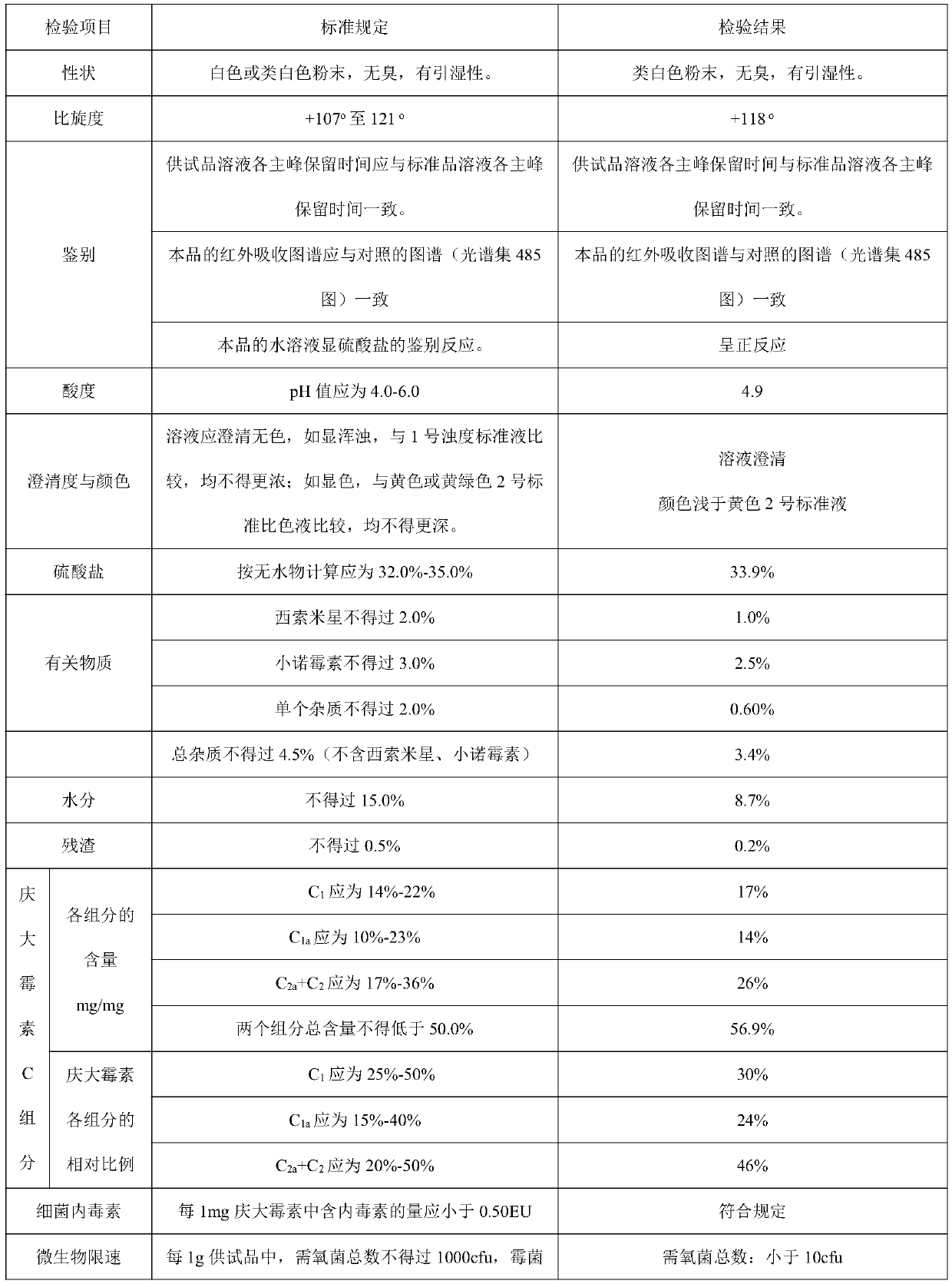Method for recycling activated carbon after gentamycin sulfate decolorization
A technology of gentamicin sulfate and activated carbon, which is applied in the direction of separation methods, chemical instruments and methods, preparation of sugar derivatives, etc., can solve the problems of cumbersome processing procedures, large staffing, and heavy workload, so as to reduce production costs, The effect of protecting the environment and investing in small transformation
- Summary
- Abstract
- Description
- Claims
- Application Information
AI Technical Summary
Problems solved by technology
Method used
Image
Examples
Embodiment 1
[0032] The method for gac recycling after gentamicin sulfate decolorization, concrete steps are as follows:
[0033] 1 heating alkaline washing
[0034] 1.1 Put 500kg of wet activated carbon into a 5-ton enamel reaction kettle, add 1000L of water and 50kg of sodium hydroxide, stir and turn on steam to heat to 80°C, keep it warm for 3 hours, and maintain pH=14.
[0035] 1.2 Release the feed liquid to the filter press box for hot filtration, and the filtrate enters the acid-base neutralization tank.
[0036] 1.3 Wash the filter cake with 500kg of hot water at 80°C for three times in total. The filtrate enters the acid-base neutralization tank, and the washed filter cake is dried with air to obtain activated carbon after alkali washing.
[0037] 2 heating pickling
[0038] 2.1 Add the activated carbon after alkali washing into a 5000L reaction kettle, add 500L water, add 6kg of concentrated sulfuric acid with a mass concentration of 98%, stir and heat up to 65°C, keep stirring ...
Embodiment 2
[0055] The method for gac recycling after gentamicin sulfate decolorization, concrete steps are as follows:
[0056] 1 heating alkaline washing
[0057] 1.1 Put 500kg of wet activated carbon into a 5-ton enamel reaction kettle, add 1000L of water and 50kg of sodium hydroxide, stir and turn on steam to heat to 85°C, keep warm for 3 hours, and maintain pH=13.
[0058] 1.2 Release the feed liquid to the filter press box for hot filtration, and the filtrate enters the acid-base neutralization pool.
[0059] 1.3 Wash the filter cake with 500kg of 85°C hot water for three times in total. The filtrate enters the acid-base neutralization tank, and the washed filter cake is dried with air to obtain activated carbon after alkali washing.
[0060] 2 heating pickling
[0061] 2.1 Add the activated carbon after alkali washing into a 5000L reaction kettle, add 500L water, add 6kg of concentrated sulfuric acid with a mass concentration of 98%, stir and heat up to 60°C, keep stirring for 1 ...
Embodiment 3
[0080] The method for gac recycling after gentamicin sulfate decolorization, concrete steps are as follows:
[0081] 1 heating alkaline washing
[0082] 1.1 Put 500kg of wet activated carbon into a 5-ton enamel reaction kettle, add 1000L of water and 50kg of sodium hydroxide, stir and turn on steam to heat to 83°C, keep warm for 3 hours, and maintain pH=13.5.
[0083] 1.2 Release the feed liquid to the filter press box for hot filtration, and the filtrate enters the acid-base neutralization pool.
[0084] 1.3 Wash the filter cake with 500kg of 83°C hot water for three times in total. The filtrate enters the acid-base neutralization tank, and the washed filter cake is dried with air to obtain activated carbon after alkali washing.
[0085] 2 heating pickling
[0086] 2.1 Add the activated carbon after alkali washing into a 5000L reaction kettle, add 500L water, add 6kg of concentrated sulfuric acid with a mass concentration of 98%, stir and heat up to 64°C, stir and keep warm...
PUM
 Login to View More
Login to View More Abstract
Description
Claims
Application Information
 Login to View More
Login to View More - R&D
- Intellectual Property
- Life Sciences
- Materials
- Tech Scout
- Unparalleled Data Quality
- Higher Quality Content
- 60% Fewer Hallucinations
Browse by: Latest US Patents, China's latest patents, Technical Efficacy Thesaurus, Application Domain, Technology Topic, Popular Technical Reports.
© 2025 PatSnap. All rights reserved.Legal|Privacy policy|Modern Slavery Act Transparency Statement|Sitemap|About US| Contact US: help@patsnap.com



